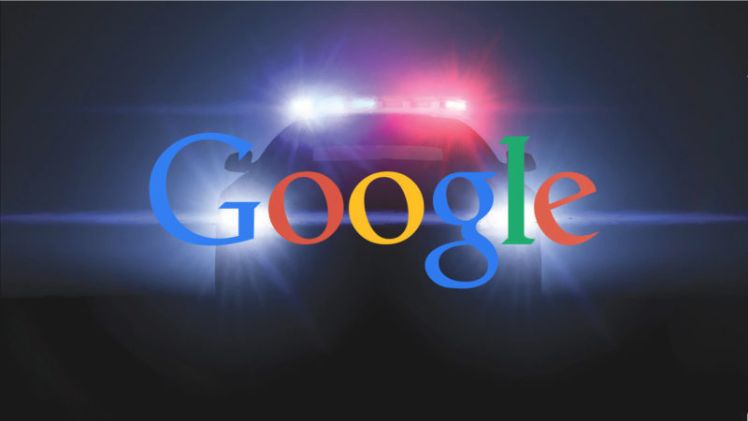Can You Be Banned from Google? Everything You Need to Know About Google Penalties and Bans

When we think about Google, it’s often in the context of searching for information, running ads, or optimizing websites to rank higher. But many wonder: Can you be banned from Google? The short answer is yes. Whether you’re a website owner, advertiser, or content creator, Google has strict guidelines in place to ensure the safety, relevance, and quality of its services. If violated, you could face penalties—or in severe cases, a ban. In this comprehensive guide, we’ll explore how and why Google issues bans, how you can avoid them, and how to recover if it happens.
1. Understanding Google Bans: What Does It Mean?
Being banned from Google doesn’t necessarily mean you are entirely blacklisted from the internet. There are different levels and types of penalties. For instance, you could be banned from using specific Google services such as Google Ads, Google My Business, or even have your website de-indexed, meaning it won’t appear in search results. Google bans occur when users or websites violate their policies, affecting visibility, traffic, and online reputation.
Understanding how Google’s algorithms and policies work can help you avoid practices that might lead to penalties.
2. Can Websites Be Banned from Google Search Results?
Yes, websites can be banned from Google search results, which can have a devastating effect on traffic and business. This typically happens when a website violates Google’s Webmaster Guidelines. Some common offenses include using black-hat SEO techniques, cloaking content, participating in link schemes, or distributing malware. Once your website is banned, it can take significant time and effort to regain trust and get your site re-indexed.
A ban from Google’s search index can greatly reduce a website’s visibility, hurting traffic and revenue.
3. What Leads to a Google Ban? Top Violations to Avoid
There are several reasons why Google might ban a website or user from its platform. The most common violations include:
- Keyword stuffing
- Hidden text and links
- Buying or selling links to manipulate rankings
- Cloaking or sneaky redirects
- Hosting malware or malicious content
These practices are considered manipulative, deceptive, or harmful, which violates Google’s policies. Engaging in any of these activities puts your website or online presence at risk.
Following best practices and ethical SEO strategies is crucial to avoid penalties from Google.
4. Can You Be Banned from Google Ads?
Yes, advertisers can be banned from using Google Ads. This usually happens when an advertiser violates Google’s advertising policies, which cover everything from content appropriateness to ad practices. For instance, promoting illegal products, misleading users, or engaging in dishonest practices like clickbait can get your ad account banned. Google takes these violations seriously because they aim to protect users from fraudulent or harmful ads.
When your Google Ads account is banned, it disrupts your advertising campaigns and can negatively affect your business’s revenue.
5. What Happens If Your Google My Business Account Is Banned?
Google My Business (GMB) is essential for local SEO, helping businesses appear in local search results and Google Maps. However, you can be banned from GMB if you engage in practices such as creating fake reviews, having duplicate listings, or providing misleading business information. Being banned from GMB means losing out on valuable local search visibility, which can hurt local businesses significantly.
Maintaining accuracy and transparency in your Google My Business listing is vital to avoid penalties.
6. How Can You Tell If Your Website Has Been Banned from Google?
If you suspect that your website has been banned or penalized by Google, there are a few indicators to watch for:
- A significant drop in website traffic
- Your site no longer appears in Google search results
- A manual action report in Google Search Console
- Google Ads disapproval notices
Google often provides warnings before issuing penalties, and you can check for any manual actions via Google Search Console. If your site has been removed from the index, immediate action is required to resolve the issue.
Recognizing the signs of a Google ban early on can help you take quick action to fix the problem.
7. What to Do If You’ve Been Banned from Google?
If you’ve been banned from Google, it’s essential to take swift corrective actions. Here’s how you can recover:
- Identify the violation – Check Google Search Console for manual actions or review Google’s Webmaster Guidelines.
- Fix the issues – Remove problematic content, fix security issues, or update your site to comply with policies.
- Submit a reconsideration request – Once the issues are resolved, submit a request to Google to re-evaluate your site.
- Wait for review – Google will review your site and decide whether to lift the penalty.
Recovering from a Google ban can take time, but persistence and compliance with Google’s guidelines can lead to reinstatement.
8. How to Avoid Being Banned by Google
Prevention is the best strategy when it comes to avoiding a Google ban. Here are some tips to keep your online presence safe:
- Follow Google’s Webmaster Guidelines
- Create high-quality, original content
- Avoid using black-hat SEO tactics
- Regularly monitor your site for malware and security issues
- Be transparent in your advertising campaigns
Staying within Google’s guidelines ensures your site remains compliant, and you won’t face penalties.
By adopting ethical SEO practices and maintaining a secure website, you can prevent the risk of being banned from Google.
9. The Difference Between a Penalty and a Ban
There’s a distinction between receiving a Google penalty and being banned. A penalty is a manual action or algorithmic adjustment that lowers your ranking, whereas a ban means your website or account is removed from Google entirely. Penalties are more common and often result from minor violations that can be corrected. Bans, on the other hand, are typically reserved for severe or repeated offenses.
Understanding the difference between penalties and bans can help you assess the severity of your situation and take appropriate actions.
10. Can Individual Users Be Banned from Google Services?
Yes, individual users can be banned from using specific Google services. For example, violating Google’s terms on platforms like YouTube, Google Drive, or Gmail can result in a ban. Common reasons include violating content policies, engaging in illegal activities, or spamming. Once banned, users may lose access to their accounts or files stored on Google services.
To avoid being banned as an individual, it’s important to adhere to Google’s user policies and terms of service.
Conclusion: Can You Be Banned from Google?
The short answer is yes—you can be banned from Google. Whether it’s your website, Google Ads account, Google My Business listing, or personal user account, Google has strict policies that, if violated, can result in penalties or bans. The key to avoiding such consequences is to stay informed about Google’s guidelines, create high-quality content, and engage in ethical SEO practices. Being transparent, avoiding deceptive practices, and maintaining security standards are essential for maintaining a healthy online presence.
Here are 5 frequently asked questions (FAQ)
1. Can my website be banned from Google permanently?
Answer: Yes, in severe cases of policy violations such as using black-hat SEO techniques or hosting malicious content, your website can be permanently banned. However, many bans are temporary, and you can appeal the decision after fixing the issues.
2. How do I know if my website has been banned by Google?
Answer: Common signs include a significant drop in search traffic, your site no longer appearing in search results, and receiving a manual action notification in Google Search Console.
3. What can lead to a Google Ads account ban?
Answer: Violating Google’s advertising policies—such as promoting illegal products, using deceptive ads, or engaging in fraudulent behavior—can result in a Google Ads account ban.
4. Can I appeal a Google ban?
Answer: Yes, you can appeal a Google ban by identifying the cause of the violation, fixing the issue, and submitting a reconsideration request. Google will review your appeal and may reinstate your site or account if the issue is resolved.
5. How long does it take to recover from a Google ban?
Answer: The recovery time depends on the severity of the violation and the actions taken to resolve it. It can take weeks or even months for Google to review and lift a ban after you’ve submitted a reconsideration request.




